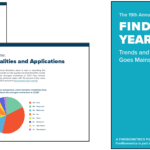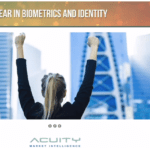The Transportation Security Administration (TSA) has announced a new biometric security pilot project that will allow travelers to verify their identity using facial recognition software, thereby limiting the need to interact with others, which could help to reduce the spread of COVID-19.

Travelers taking part in the program — which is initially limited to Ronald Reagan Washington National Airport — will step up to a kiosk where they will have their photo taken. The image captured will then be verified by software and a TSA agent who will be behind a protective acrylic shield.
Once the photo is matched to the traveler’s official identity document (passport or state ID) and their identity is authenticated by both the software and the human agent, the traveler will then be allowed to proceed to the screening lane.
COVID-19 has caused a dramatic reduction in air travel around the planet, and has led to an increase in the use of biometric access control technologies like facial recognition for touchless applications. Though this program is the latest example of measures the TSA is taking to help the air travel industry get back on its feet following several difficult months, it is not the first or only action the agency has taken.
Several hygienic measures have also been implemented, including requirements put in place that all agents wear masks and gloves, and the regular sanitization of commonly touched surfaces like handrails and waste receptacles.
“In light of COVID-19, advanced health and safety precautions have become a top priority and part of the new normal for TSA,” TSA Administrator David Pekoske said in a press release. “As a result, we are exploring rapid testing and deployment of this touchless, self-service technology.”
Pekoske went on to say that, following the conclusion of the pilot project, an assessment will be made to determine its efficacy in providing “a safer checkpoint experience, while adding significant security benefits.”
With the increased use of facial recognition technology, however, there has also been an increase in public concern over its potential infringements on individual privacy. A number of high profile companies have been on the receiving end of lawsuits filed under the Illinois Biometric Information Privacy Act (BIPA), which has led U.S. Senators Bernie Sanders and Jeff Merkley to propose legislation that would create a national version of the act.
It should be noted that travelers will not be required to submit to the facial recognition scan, and can opt-out should they instead prefer to have their identity visually verified by a TSA agent. Also of significance is that the TSA has stated that any images captured during the pilot project will not be retained by the agency following their use for identity verification.
Source: StateScoop
–
September 4, 2020 – by Tony Bitzionis







Follow Us